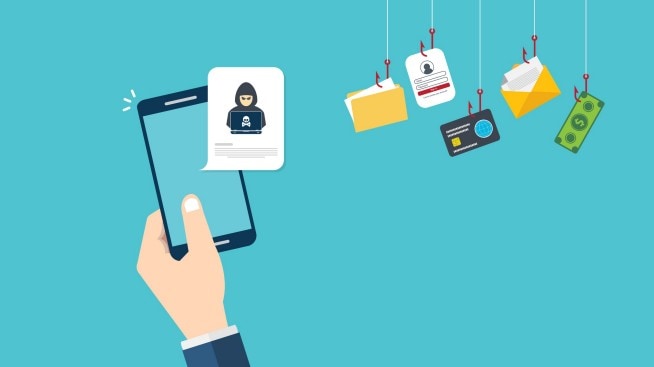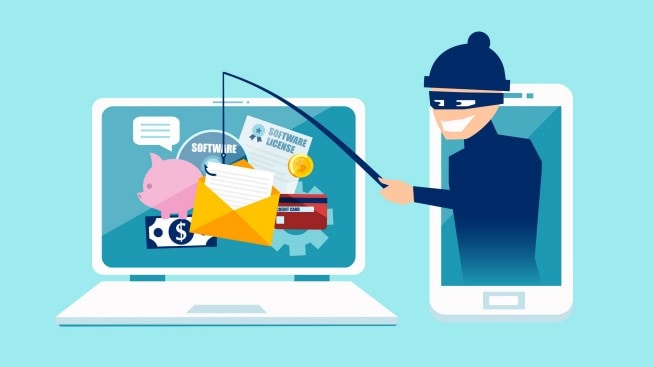What is identity theft and how can I stop it

What is identity theft and can it be prevented?
You've just received a notification that your account balance has dropped down to almost nothing and you notice that you can't log in to certain accounts. Similarly, you might be reviewing transactions on your banking app and happen to notice a large purchase you don't recall making. In both instances, you may have fallen victim to identity theft.
Finding out that there's been identity theft can be scary. Someone has stolen your information and used it to their benefit without your approval or confirmation. You may be wondering if the perpetrator has used your information in other ways. While it can be an unnerving position to find yourself in, identity theft can be stopped, and with proactive steps, you can help secure your information to prevent further damage.
In this article, you will learn:
- How identity theft occurs
- Ways identity theft affects you
- How to check if your identity has been stolen
- What to do if you think your identity has been stolen
- How to prevent identity theft
How identity theft occurs
Identity theft is essentially the act of someone stealing your personal, sensitive information and using it without your permission. Some examples of identity theft include:
- Credit card fraud, such as an individual opening lines of credit and charging expenses in your name that you didn't approve
- An unauthorized individual emptying funds from your bank accounts
- A person who uses your information to receive medical services/prescriptions
- Someone filing taxes in your name, prohibiting you from receiving a tax refund
Essentially, there are two types of identity theft that can occur—physical and online. It may happen right in front of you—such as the act of stealing your wallet and making purchases with your cards—or without you noticing, such as stealing your personal information online.
Physical information
We've all been there—you lose track of your phone or your wallet and now you're scrambling to find it. If someone has stolen your wallet or phone, you could be at risk of someone stealing your personal information. Your wallet may contain your license, credit cards (with your account numbers listed) and more. Your phone could be hacked into as well, where your digital wallet, passwords and other sensitive information could all be vulnerable to theft.
Additionally, someone may come across paperwork that contains information like your name or Social Security number (SSN). Perhaps someone has stolen your mail, you left a document behind at an office or threw it away without destroying it (such as with a shredder).
Finally, your information could be stolen even if not physically taken from you. For example, someone could watch you input a password, personal identification number (PIN) or credit card number in public, or use an electronic device to steal information when conducting transactions at ATMs or retail checkout stations.
Online information
It may seem convenient to store highly sensitive information online—you can speed up transactions and you don't have to worry about remembering your passwords to different accounts. If you don't take preventative measures, bad actors could find a way to hack into your accounts and steal your online credit card numbers, SSN, address and more.
Your information can be accessed via:
- Data breaches—this is when sensitive information is accessed through illegal means, copied, transferred and then used by unauthorized individuals.
- Unsecured browsing/websites or using a public Wi-Fi/browser.
- The dark web—is a part of the internet that isn’t visible to the general public where encrypted content often exchanges hands through anonymous users.
- Malware—software that can damage your computer so a hacker can steal information, in addition to spreading viruses.
- Phishing attacks—for example, a fake/tempting email that prompts you to give information or access to a bad actor.
Ways identity theft affects you
Your identity is essential for many reasons, especially when it comes to your financial well-being. If someone steals your credit card information and has been using it without you noticing, you could risk hurting your credit score or going into debt. Your personal information can also be used against you—for example, your passwords could be changed, locking you out of accounts or making it difficult to verify your identity.
Unfortunately, this can happen to just about anyone, especially if you're not diligent about keeping information safe.
How to check if your identity has been stolen
Identity theft is sneaky. One minute you pay for your coffee with your credit card with no problem, and the next you're notified that you've been charged for an enormous purchase you didn't make.
Living in the digital age where things can happen almost instantaneously, it's important to build new muscle memory in terms of monitoring all your online information and assorted accounts. There are a few healthy habits you can create to help you stay aware of possible identity theft:
- Keep an eye on all recent transactions within your online checking account as well as your credit card accounts.
- Set up alerts for when there's been changes to your credit usage or report, you can do so, for example by enrolling in Chase Credit Journey's® identity monitoring alerts or credit monitoring alerts.
- Monitor your credit score and credit report via your online banking platforms/apps for suspicious financial activity.
- Your bank may alert you about purchases you've made from suspicious websites or purchases with a large price tag—this service can be helpful so that you can either confirm or deny the purchase.
What to do if you think your identity has been stolen
If you're nervous that someone may have stolen your wallet, phone or information online, there are few steps you can take to help alleviate further harm.
- Contact your bank/issuer to alert them of potential fraud.
- Freeze your accounts to avoid further charges; also alert the credit bureaus to try to prevent any further accounts from being opened in your name.
- Obtain an up-to-date copy of your credit report and billing statements—and be prepared to dispute any new accounts or transactions you do not recognize.
- Reset your passwords and review your financial activity for any other signs of fraud.
Given the growing concern over identity theft, many banks and financial institutions may offer a wide range of services to help keep your information protected. For example, when you enroll in Chase Credit Journey, you'll have the option to also enroll in identity monitoring. These alerts notify you of potentially fraudulent activity so that you can take action if necessary. You'll also be notified if information has been at risk, such as found in a data breach.
How to stop it
Unfortunately, no matter the precautions you may take, there is always a possibility that someone could steal your identity, but you can take measures to help keep your information secure. To help protect your information from being vulnerable to theft, you may want to take the following steps.
Use strong passwords
This goes for all your accounts online, your phone and any other passwords used to lock your information in a safe place. Consider using a password manager as an added layer of security, and refresh your passwords often.
Avoid storing information on browsers or with retailers
It might seem convenient to have your browser store information like your mailing address and credit card numbers, otherwise known as autofill information. This feature on your browser may make online purchase processes quicker, but your information is at more risk of being stolen or recognized by a hacker. In fact, try to frequently clear your browser of cookies, history and cache.
Retailers may also keep your information on hand without you realizing it. If possible, refrain from allowing retailers to collect and store your information. For example opt-out of providing your cell phone number when prompted to receive notifications, or remove your email from a mailing list. Refrain from allowing them to store your credit card data.
Regularly check your online accounts
Do you use online banking or access your accounts through an app on your phone? Do you use peer-to-peer payment platforms like Zelle® to send and receive funds? All these important accounts could be regularly checked to see if there has been suspicious activity. You may also want to consider refreshing your account passwords or changing your phone's passcode to deter hackers.
Keep track of your physical information
Today, there are numerous apps and devices that can help keep track of where important items are kept. For example, you may want to place a tracking device in your wallet. Should you lose your wallet, you can use your phone to track where it is. As simple as it may seem, another good practice is avoiding writing down your passwords or personal information anywhere that could be easily accessible to anyone other than yourself.
Monitor your credit score
One of the simplest ways you can protect yourself is to monitor your credit score and your credit report. By regularly checking for updates, you can ensure that your current information is accurate. If there's any suspicious financial activity, you may be able to catch it early on before more harm can be done.
Bottom line
Whether perpetrated online, in person or by illegally obtaining sensitive documents, identity theft is a serious act—it can put your financial health at risk. Fortunately, you have the power to make proactive choices that can help you secure your information—from your SSN to your credit card account numbers.
For example, remember that you can help start protecting your information today, enroll in Credit Journey® and opt in for identity monitoring and credit monitoring alerts.



